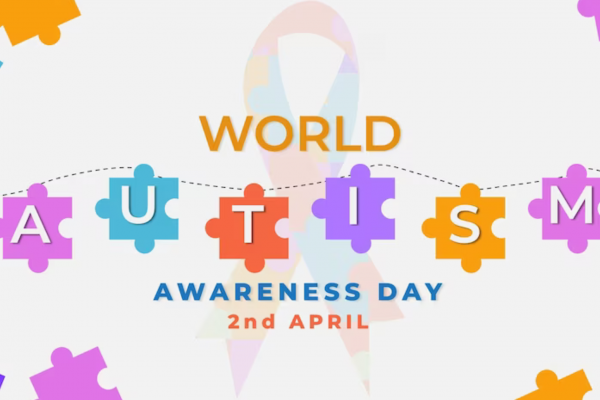Parkinson’s disease is life-altering but not life-threatening.
Parkinson’s disease (PD) is a chronic and progressive disease characterized as a movement disorder that can impair one’s ability to perform everyday tasks. Parkin’s symptoms worsen with time. Motor symptoms are the most frequent signs seen across patients, including tremors, rigidity, slowness of movement, and muscle stiffness.
Understanding Parkinson’s
Parkinson’s disease (PD) affects people in various ways. Everyone will not experience all of Parkinson’s symptoms, and even if they do, they will not necessarily have them in the same order of severity.
The summary table below would help us understand Parkinson’s symptoms :
| Parkinson’s Symptoms | |
| Parkinsons- Motor Symptoms | Parkinsons- Non-Motor Symptoms |
| TremorRigiditySlowness of movement falls and dizzinessFreezing | Muscle Pain Fatigue Sleep disturbances Depression Constipation Cognitive changes Fear or anxiety Urinary problems |
Stages of Parkinson’s Explained-
Stage 1
- The mildest symptoms of Parkinson’s are experienced in Stage 1
- In this stage, the symptoms are not severe that would interfere with daily tasks.
- Tremors and other movement difficulties restrict to one side of the body.
- Prescribed medications can help to minimize and reduce symptoms at this stage.
Stage 2
- Parkinson’s symptoms can advance between months to even years, characterized as a progression from stage 1 to stage 2.
- Stage 2 is a moderate form of Parkinson’s, though symptoms are much more noticeable than in stage 1.
- Stiffness, tremors, and trembling may become more noticeable, besides facial expressions may also change.
- At this stage, people experience symptoms on both sides of the body and may have difficulty speaking.
Stage 3
- Stage 3 of Parkinson’s disease is the middle stage and represents a significant turning point in its progression.
- Many of the symptoms are similar to those seen in stage 2. However, patients are likely to experience dizziness and slowed reflexes.
- Overall, movement slows down and falls become more common in stage 3.
Stage 4
- Stage 4 Parkinson’s significantly decreases the movement and reaction times, causing many people unable to live alone.
- Though it is possible to stand without assistance during stage 4, movement may necessitate the use of support mediums like a walker.
Stage 5
- Progressive leg stiffness can cause freezing when standing, making it impossible to stand independently or walk.
- People in this stage frequently require wheelchairs and assistance to prevent falling.
- Confusion, hallucinations, and delusions affect up to 30% of people in stages 4 and 5.
Famous Personalities with Parkinson’s
Many people identify Parkinson’s with Muhammad Ali or Michael J. Fox. Here’s a list of notable personalities who have helped to raise awareness around the Parkinson’s conversation:
- Muhammad Ali
Ali nicknamed the “People’s Champion,” was diagnosed with Parkinson’s just three years after his retirement. Throughout the 2000s, he raised funds for Parkinson’s research, even carrying the Olympic Flag in 2012. He was instrumental in the establishment of the Muhammad Ali Parkinson Center. Ali was diagnosed with Parkinson’s in 1984. The people’s champion died in 2016.
- Michael J. Fox
Michael J. Fox, an actor, and philanthropist is one of the world’s most well-known Parkinson’s disease advocates. As Marty McFly in Back to the Future, Fox became a household name and went on to have an illustrious acting career, winning Emmys and a Golden Globe. Fox first noticed symptoms of Parkinson’s disease when he was only 29 years old. He has since dedicated his life to Parkinson’s research, establishing The Michael J. Fox Foundation for Parkinson’s Research.
- Pope John Paul II
As the first non-Italian Pope in 455 years, Pope visited more than 100 countries and was a strong advocate for human rights for his more than 25 years in the Vatican. He was diagnosed with Parkinson’s disease in 2001 and died in 2005.
- Robin Williams
Winner of Academy Awards, Emmys, Golden Globes, Screen Actors Guild Awards, and Grammy Awards during his career, Robin Williams was diagnosed with Lewy Body Dementia and Parkinson’s three months before his death in August 2014.
Observing World Parkison’s day
The 11th of April is World Parkinson’s Day, and the month of April is Parkinson’s Awareness Month. On this day, we commemorate the birthday of James Parkinson, a neurologist, geologist, scientist, and activist.
J.W.S. Van der Wereld, a Dutch horticulturist who had Parkinson’s disease, created the red and white tulip that he named Dr.James Parkinson’s tulip. The flower was adopted as a symbol of hope for Parkinson’s patients and designated as the official Parkinson’s symbol in 2005.
Caring Parkison’s with Gigadocs
Unfortunately, there is no known cure for Parkinson’s disease at this time. However, several treatment ways help manage the symptoms, including medication and surgery that improves symptom control.
Through Physiotherapy, Yoga, Speech Therapy, Occupational Therapy, Diet and Nutritional Counselling/Psychotherapy, and other supportive therapies, a person with Parkinson’s can improve their overall quality of life, stay active and healthy.
A neurologist– who specializes in movement disorders conducts a Parkinson’s diagnosis after a thorough neurological examination. Get the best Parkison’s consultations from experienced specialists and learn how these therapies work. Download the Gigadocs Teleconsultation app- your one-stop solution for all your healthcare needs.
Download the Gigadocs app from-
- IOS App – apple.co/2W2iG4V
- Android App – bit.ly/33AQoRC
To know more and schedule a Virtual Consultation demo, Email, at info@gigadocs.com




